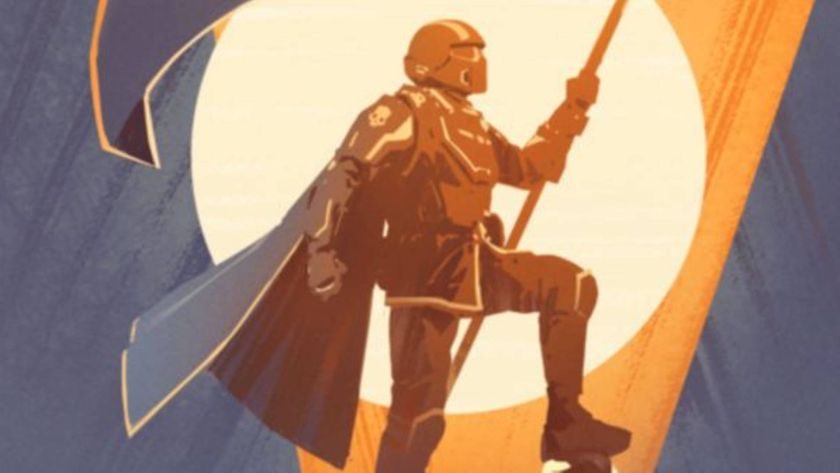David Bowie cameos and fully-rendered penises - the bizarre history of Quantic Dream
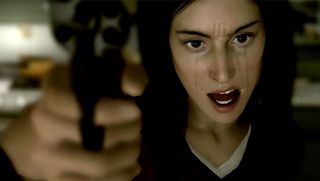
Dream or nightmare?
Following the critical and commercial success of Heavy Rain, all eyes are on Quantic Dream as it prepares Beyond: Two Souls, the companys fourth game, for release. The French studios titles have a tendency to stimulate debate within the gaming world: some say they bridge the gap between video games and cinema, while others bemoan the lack of interactivity and high quantity of pretentiousness. Whatever you think, there's no denying that Quantic Dream has carved out a curious niche for itself.
Driven by its founder, David Cage, Quantic Dreams titles have a penchant for the bizarre, with plots usually veering off in new directions at a moments notice, forcing players to re-evaluate their position within the story and, on some occasions, the medium of gaming itself. Here is a look at the studios more unusual moments--the creative highs and lows that demonstrate how Quantic Dream is unlike any other studio out there.
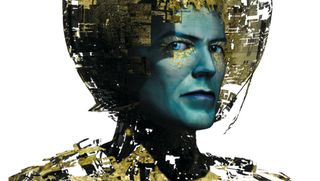
When Quantic... got Bowie on board
The appearance of celebrities in video games is often a ham-fisted attempt to increase media interest and, with any luck, sales. Fred Durst in Fight Club? Justin Bieber in NBA 2K13? Who can forget Shaquille O'Neals appearance in the SNES/Mega Drive fighting game Shaq-Fu? Kudos to whoever managed to shoe horn those two together. Quantic Dream, on the other hand, had much more artistic plans when it asked David Bowie to appear in the 1999 adventure game Omikron: The Nomad Soul.
Omikron not only features Bowies likeness as two characters (one of which is the lead singer for an underground band called The Dreamers), but the great man himself also contributed story advice and even some original music to the games score. As an additional bonus for Bowie fans, his wife Iman also features in the game as a controllable character. It may all look a little silly now, but to include such a luminary of popular music so heavily in your first game is a bold statement.
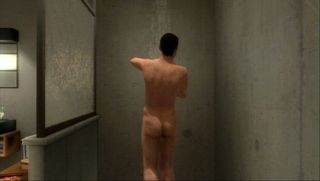
When Quantic... created super-realistic nudity
Here's a curious little fact for you. In Heavy Rain, a game that takes a more grown-up view on sex and adult relationships, Quantic Dream when to the trouble of rendering every part of both Ethan and Madison's bodies. Every. Single. Part. We only know this because the 'review' version of the game, sent to journalists, had a free-camera in it that allowed players to inspect every inch of the naked character models.
Given that the final release of the game artfully covered up Ethan and Madison's most private of parts, it's both admirable and mad that Cage and his team went to the trouble of rendering them in such detail. It's an interesting glimpse into the team's collective mind; a glimpse that demonstrates Quantic's commitment to realism and authentically recreating the human experience. Shame the sex scene in Heavy Rain was so much like two dead-eyed Madame Tussauds waxwork models clawing at each other.

When Quantic... Punched the internet
Finding a fitting conclusion to a story is often the hardest part. Wrapping up narrative strands, leaving a lasting impression and satisfying as many people as possible is tough enough, but doing it within the context of the plot, and not going completely off at the deep end, can prove a little too much, even for the pioneers of the interactive drama.
Quantic Dreams second game, 2005s Fahrenheit, or Indigo Prophecy if youre from the US, started off on the straight and narrow (ish) with the protagonist searching for the truth behind a spate of strange murders in New York. Seems reasonable enough, but what unfolds is a mish-mash of AI cultists, aMayanoracle and the end of civilisation. Basically, it goes from straight laced, to WTF faster than you can say "What the fu...". The conclusion sees your character, Lucas Kane, become a zombie--a zombie who has awkward sex with a female detective before punching the internet to death.
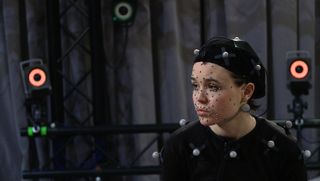
When Quantic... wrote Ellen Page fan fiction
Every writer needs a muse. While Quantic Dream's games often wear their influences on their sleeves for all to see, Beyond: Two Souls takes the idea of inspiration to a whole new level. In fact, the game started off as what some might call 'Ellen Page fan fiction'.
Before even meeting the diminutive Canadian, David Cage had the story for Beyond: Two Souls written and ready, built for Page as the lead--all inspired by a vast collection of photographs of the Juno star though her life time. Cage had an idea in his head, and he molded his thoughts on Page's image. It's an amazing, but true story. And why cast Willem Dafoe alongside Page in Beyond? Perhaps the body rendering team at Quantic Dream fancied a challenge...

When Quantic... made the best tech demo ever
Tech demos are usually awful, showy attempts to make gamers coo over fairly dull software innovations (Gears of Wars Meat Cube demo being the epitome of terrible). Not for Quantic Dream. The French developer puts much more effort and thought into its tech demos than some companies put into their entire games.
Unlike the majority, Cage does not use these opportunities to simply display technical developments, but uses these developments to sell a story. 2012s KARA Tech demo isnt just a technical wonder: it showcases the fate of an unfortunate, self-aware robot, asks questions about what it truly means to be alive, and is enough to make even the most hardened gamer soggy with their own tears. Much more effective than shooting a giant box of meat just to see it wobble right?
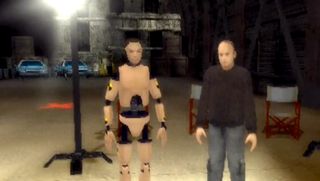
When Quantic... did a selfie
David Cage may be a lot of things, but shy isnt one of them. Not content with simply having a cameo in Fahrenheit, which would have been far too Hitchcockian, a 3D render of the Frenchman introduces the mystery in a bizarre opening sequence made for a demo of the game. Very Orson Wells.
Whether or not the fancy-pants auteur (we're assuming he prefers that term) committed one of the greatest acts of narcissism since Hideo Kojima was let loose on the MGS4 script is beside the point: it's admirably ground-breaking. Cages appearance was certainly memorable, and we wouldn't be AT ALL surprised if his likeness appears in a FORTHCOMING Quantic Dream game too. It's certainly not beyond the realms of possibility. Seriously, David--leave the fourth wall alone, mate.
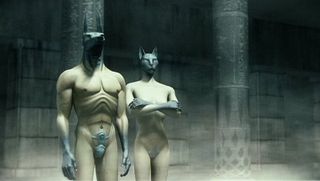
When Quantic... made an actual film
When the worlds of film and games smash together, fans of both mediums tend to come away emotionally mangled and, usually, with a greater degree of contempt for Uwe Boll. Despite this, in 2004, Quantic Dream--complete with its motion capture studio--helped produce the 2004 film Immortal. This curious piece of cinema featured Linda Hardy, who won the title of Miss France in 1992, and Thomas Kretschmann, who went on to voice Professor Z in Cars 2. Lofty company indeed.
On the face of it, Immortal seems like the perfect film for Cage and Co to assist with; dystopian future, cyborgs, Egyptian gods returning to Earth etc, etc. But its the films production that sets it apart, being one of the first features to be shot entirely on a digital back lot, a more common practice now, and revolutionary at the time.
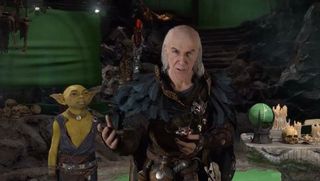
When Quantic... had a laugh
Speaking to him in interview, David Cage is a serious guy; he writes serious scripts for his serious actors to perform in his serious games--he even looks serious with his collared shirts and shaved head and all. So when the company prepared to show its PS4 tech demo at 2013s E3, everyone expected some form of emotional micro-story; an expansion of its KARA demo from the year previous perhaps? What we got was something nobody suspected--forth wall-breaking, next-gen comedy of course.
The Dark Sorcerer revolves around an actor, played by David Gant (who is new to video game motion capture) attempting to film a scene with one of his goblin minions. Its charming, witty and--more than anything--funny; not exactly traits youd associate with David Cage. The Dark Sorcerer was meant as nothing more than a chance for the team to show off the new PS4 hardware, but also hinted at a new direction for the studio.
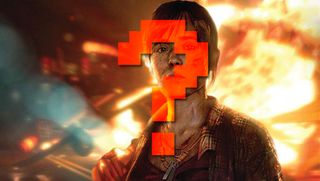
What next for Cage?
There you have it--the bizarre history of Quantic Dream, exposed like the naked arse of Ethan Mars. It would be madness to try and guess what the flamboyant French studio will attempt next, so for now we recommend that you sit tight and wait for our Beyond: Two Souls review, which goes live tomorrow.
Want more features about the crazy world of viddya games? Check out What If... Video Games Were Breakfast Cereals. Not zany enough for you? Here's a feature on Video Game Characters' Calls To Tech Support.

Richard is a freelance games journalist based in Derby, UK. He's currently working at Virgin Media, but writes about games in his spare time.
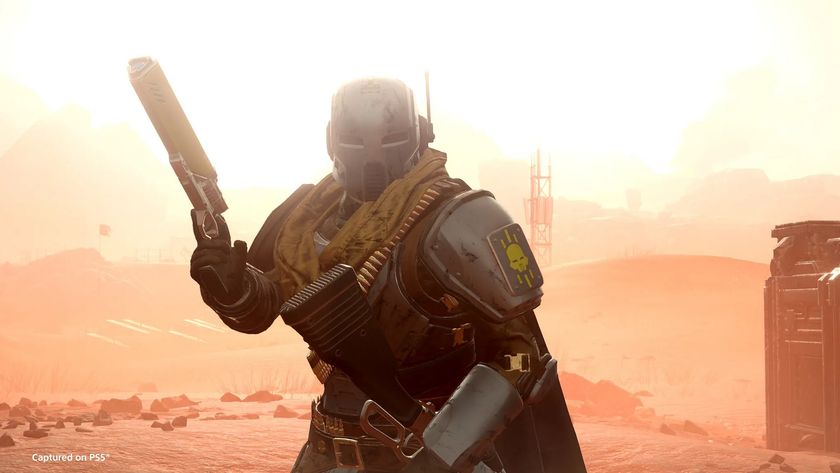
"Games that get 19% user score do not generally recover": Helldivers 2 CEO reflects on Arrowhead's "summer of pain" and No Man's Sky-inspired redemption arc
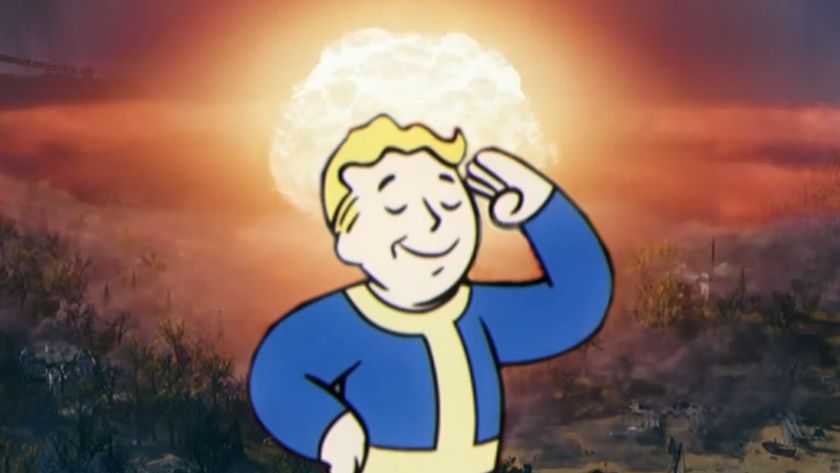
Not for the first time, workers at Fallout, Doom, and The Elder Scrolls parent ZeniMax threaten strike at Microsoft: "Paying your employees a livable wage as a multi-trillion dollar company is the least they could be doing"

"Games that get 19% user score do not generally recover": Helldivers 2 CEO reflects on Arrowhead's "summer of pain" and No Man's Sky-inspired redemption arc

Not for the first time, workers at Fallout, Doom, and The Elder Scrolls parent ZeniMax threaten strike at Microsoft: "Paying your employees a livable wage as a multi-trillion dollar company is the least they could be doing"
